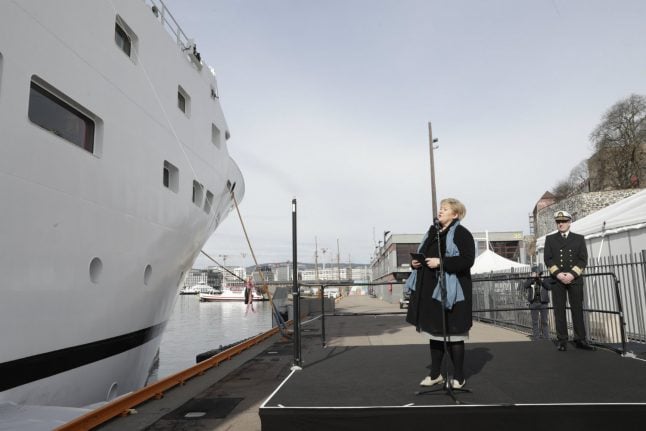Prime Minister Erna Solberg on Friday launched the country’s new research vessel, the Dr. Fridtjof Nansen, which will participate in government aid programmes aimed at renewable use of the ocean’s resources.
In connection with the launch, the government presented its first white paper on the place of the oceans in foreign and development policy, reports news agency NTB.
Sustainability, clean and healthy oceans and ‘blue growth’ top the list of the government’s priorities.
“We must take a leading international role in renewable use of the oceans,” foreign minister Børge Brende said, while announcing that 100 million kroner would be pledged towards international efforts against marine litter including microplastics, reports NTB.
“The Government is stepping up its efforts to promote Norway's ocean interests. We intend to make sustainable use of the oceans a global priority,” said Brende in a press statement.
The white paper highlights the fact that the Arctic Ocean is one of the government’s top foreign policy priorities, says the ministry.
“Norway has a long history as a maritime nation, and there are considerable opportunities for sustainable growth in ocean-based industries in the time ahead. However, there is also serious concern about environmental problems such as pollution and marine litter, climate change, and unsustainable uses of the oceans, such as overfishing,” said the Ministry of Foreign Affairs wrote in its statement.
Amongst the priorities listed in the government’s white paper are cooperation with other countries on maritime preservation, and sustainable ocean use; combatting fisheries crime to protect sustainability; and considering establishing a centre of expertise on ocean and Arctic issues in Tromsø.
As well as spending 100 million kroner combatting marine litter and microplastics, the government also said it would spend five billion kroner ($589 million) on climate-related measures in 2017’s budget in an effort to reduce negative effects of climate change.



 Please whitelist us to continue reading.
Please whitelist us to continue reading.